Yes, weight lifting can cause TMJ problems. The main reason is jaw clenching during heavy lifts, poor posture, and increased tension in the neck and shoulders that strain the temporomandibular joint. With the right form, posture correction, and preventive steps, you can reduce this risk.
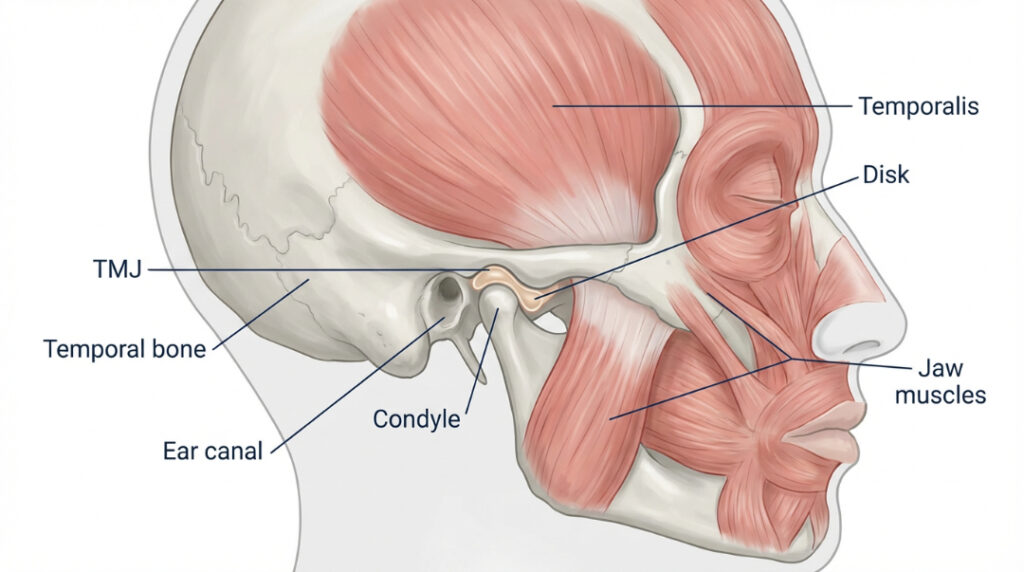
The temporomandibular joint (TMJ) is the hinge joint that connects your jawbone to your skull. It allows you to speak, chew, and move your jaw. When this joint or the surrounding muscles are stressed or injured, it leads to temporomandibular joint disorder (TMD).
Symptoms often include:
Understanding how this joint works helps explain why weight lifting can trigger or worsen TMJ symptoms.
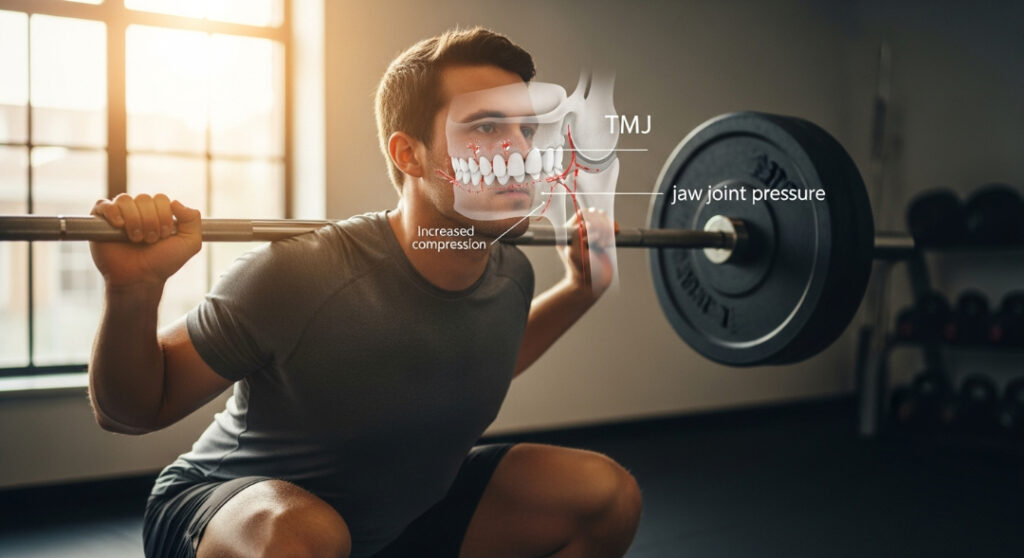
Weight lifting stresses more than the muscles you target. When you brace for a lift, you unconsciously clench your teeth and tighten your jaw muscles. That pressure transfers to the TMJ.
Key factors:
Buford Dentist notes that athletes often underestimate how much bracing and jaw tension contribute to dental and joint pain during workouts.
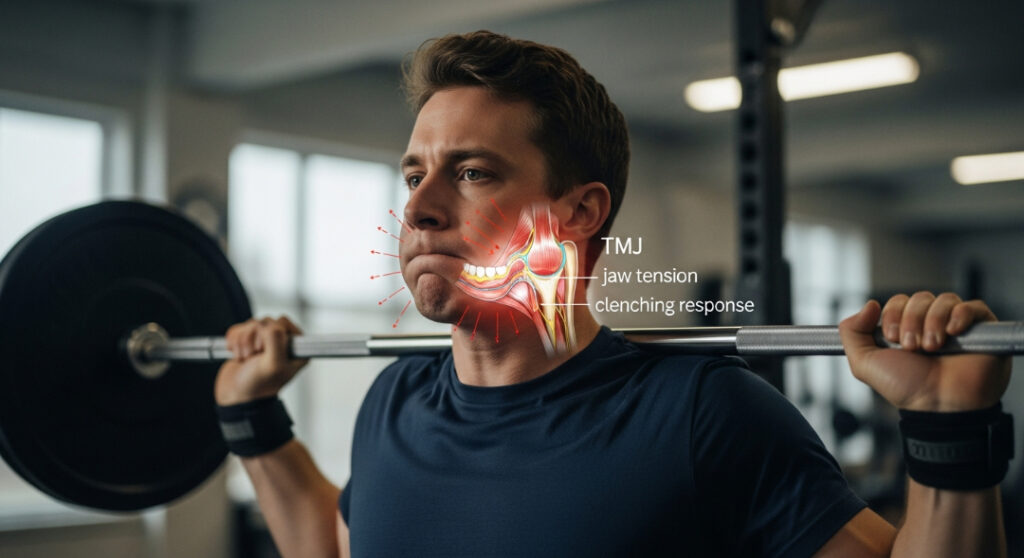
Some lifts create more risk because of the posture and pressure they require.
High-risk exercises:
Exercises that involve holding your breath or clenching for stability increase TMJ stress.
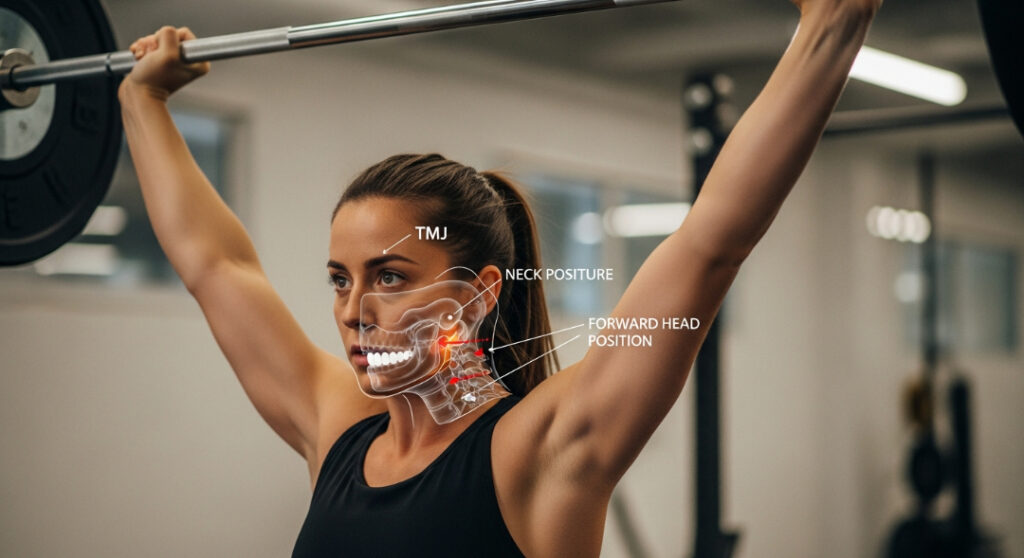
The cervical spine and jaw are closely connected. Poor lifting posture pushes the head forward or tilts it back, straining the TMJ.
Issues from posture:
Correcting posture is key to preventing TMJ pain in lifters.
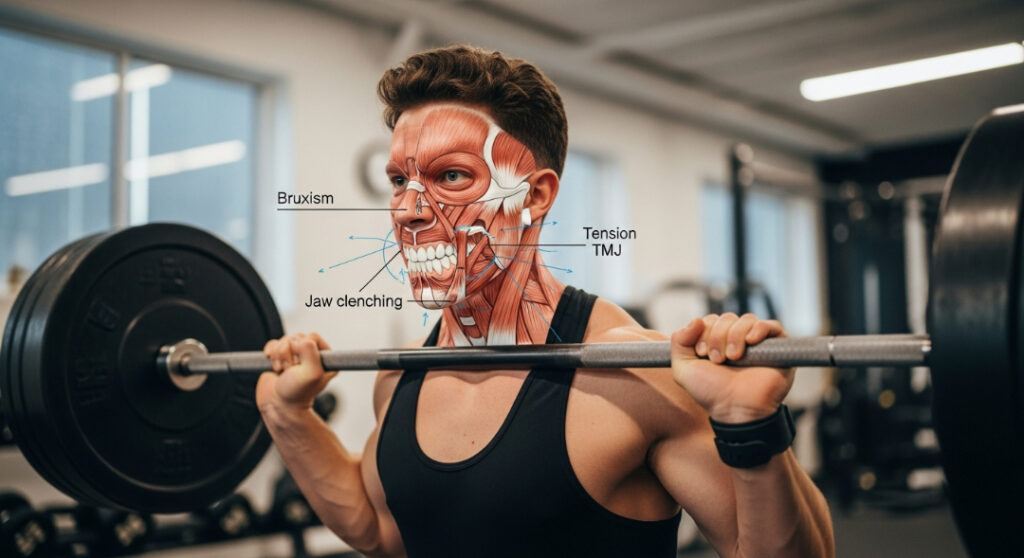
Bruxism, or teeth grinding, often shows up during stressful lifts. Even without realizing it, lifters bite down to stabilize.
This behavior:
Sports dentistry often recommends mouthguards to reduce the impact of bruxism during lifting.
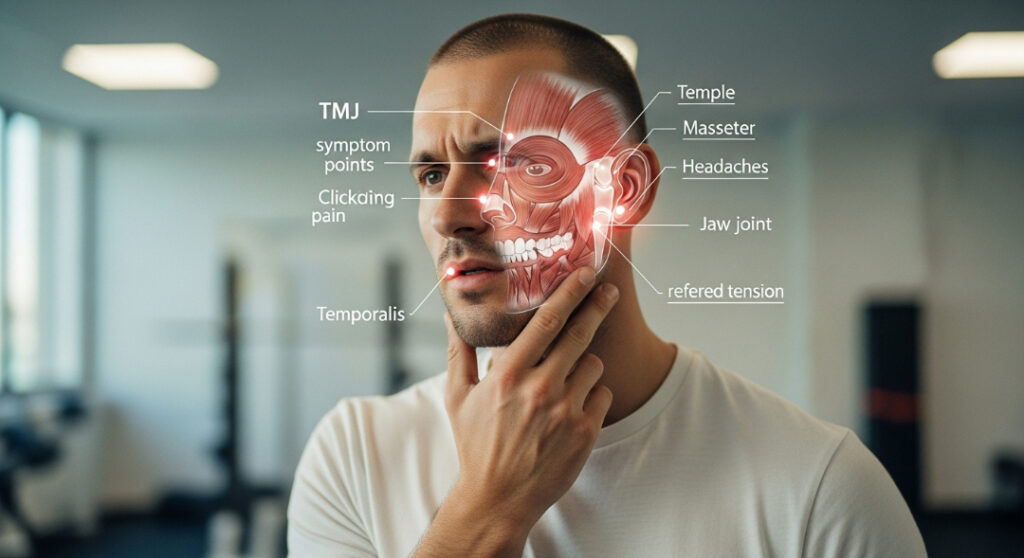
Early signs help prevent long-term damage.
Symptoms linked to weight lifting:
Ignoring these signals risks chronic TMD.
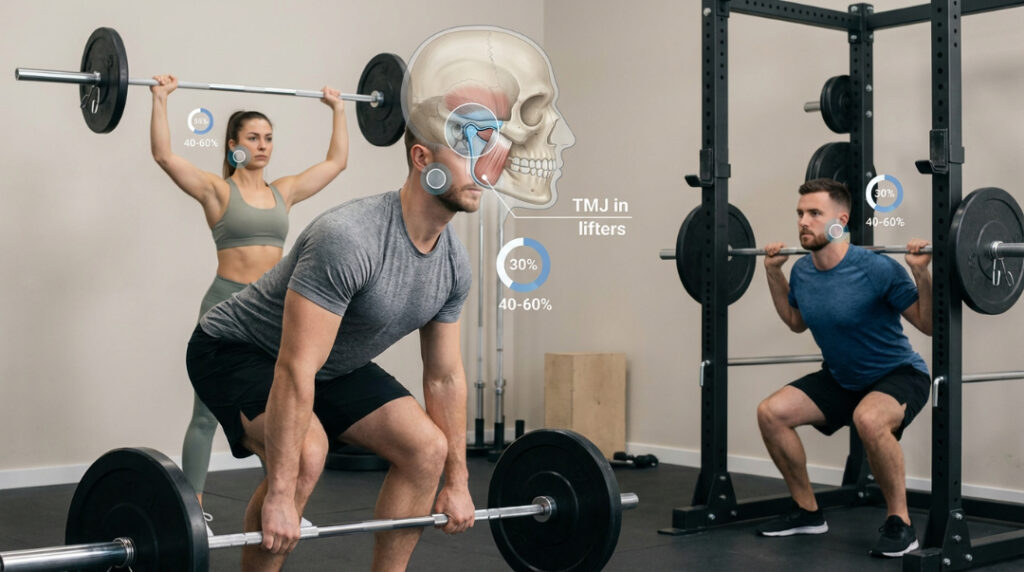
Research shows athletes and strength trainers have higher rates of TMD symptoms than the general population.
The problem is underreported, as many athletes blame neck or dental issues instead of the TMJ.
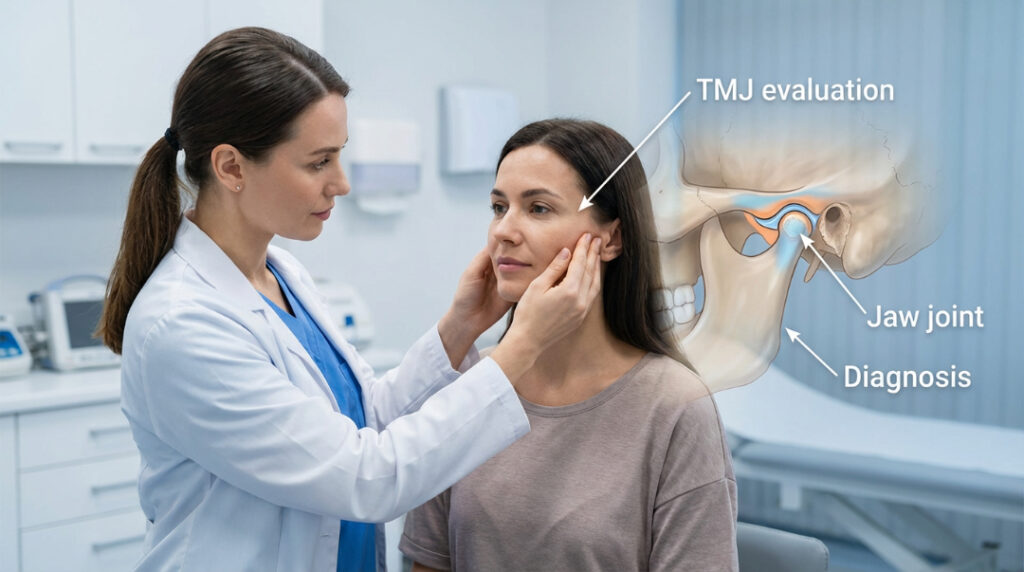
If you suspect TMJ pain from lifting, get evaluated early.
At-home checks:
Professionals who diagnose TMJ:
Buford Dentist emphasizes early evaluation prevents chronic damage and reduces downtime from training.
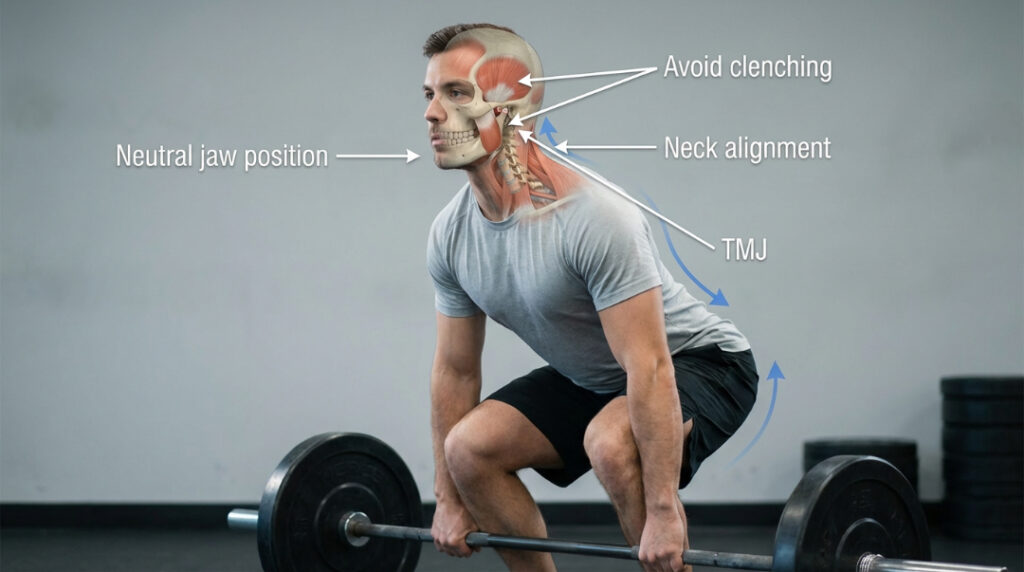
Practical steps help protect your jaw while lifting.
Making small changes lowers long-term TMJ risk.
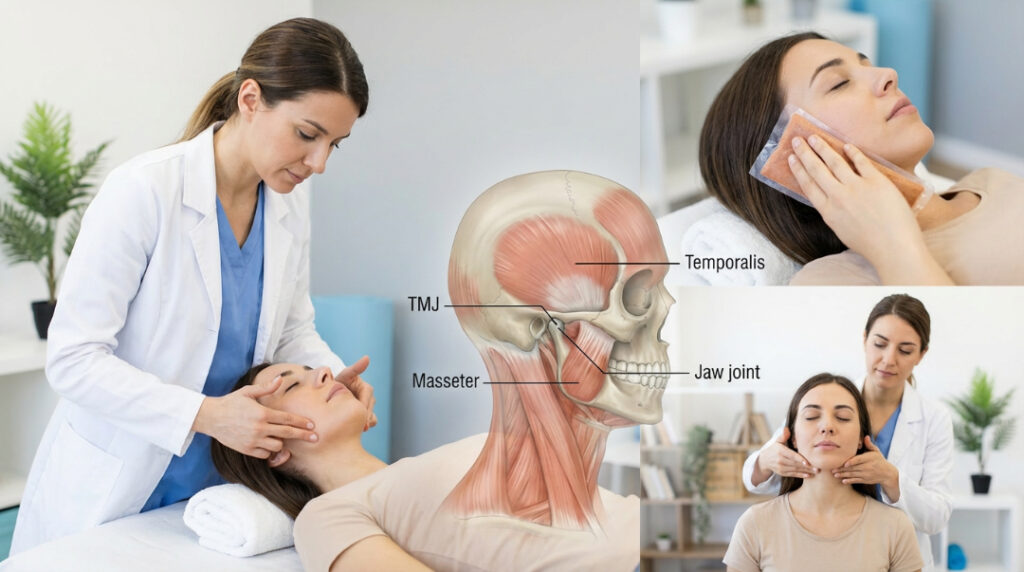
Once TMJ symptoms develop, treatment depends on severity.
Conservative care:
Medical options:
Most patients recover with conservative methods if treated early.
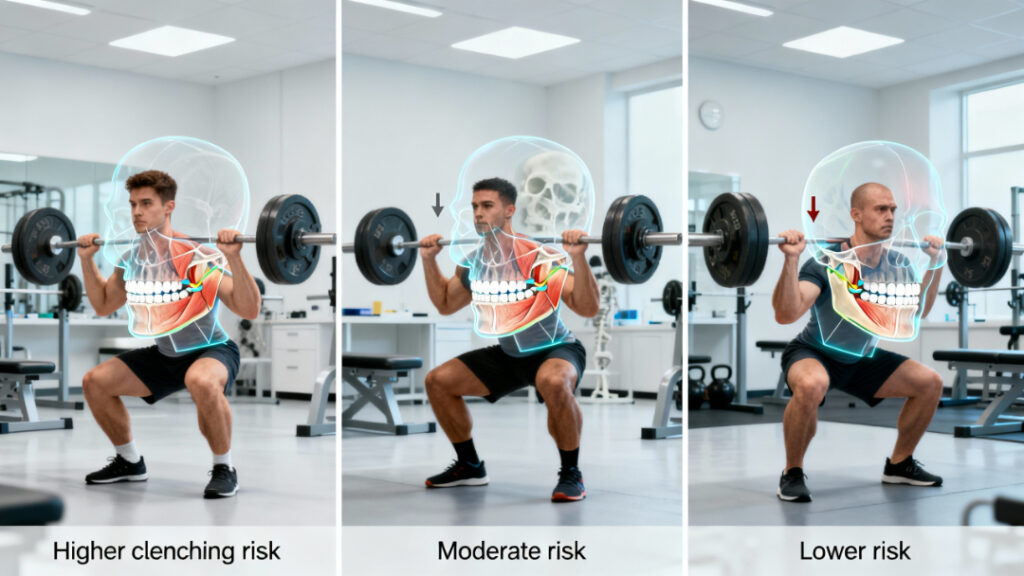
Different training styles affect TMJ stress.
Modifications:
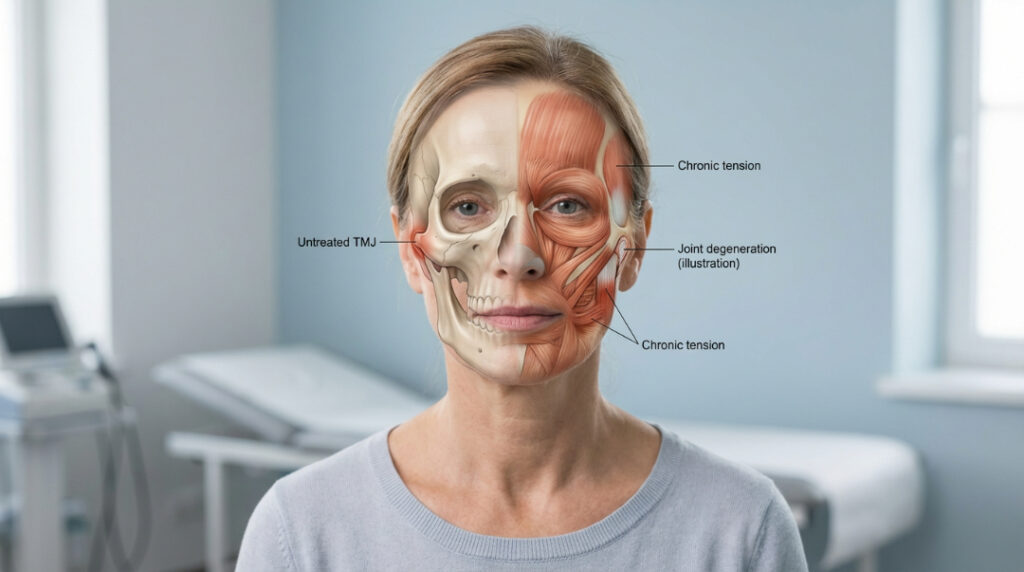
Untreated TMJ problems worsen over time.
Possible outcomes:
Early intervention improves recovery and keeps lifters training without interruption. Many athletes also wonder How Long Does TMJ Last, and Does It Go Away on Its Own? — understanding recovery timelines helps set realistic expectations and reinforces the importance of treatment.
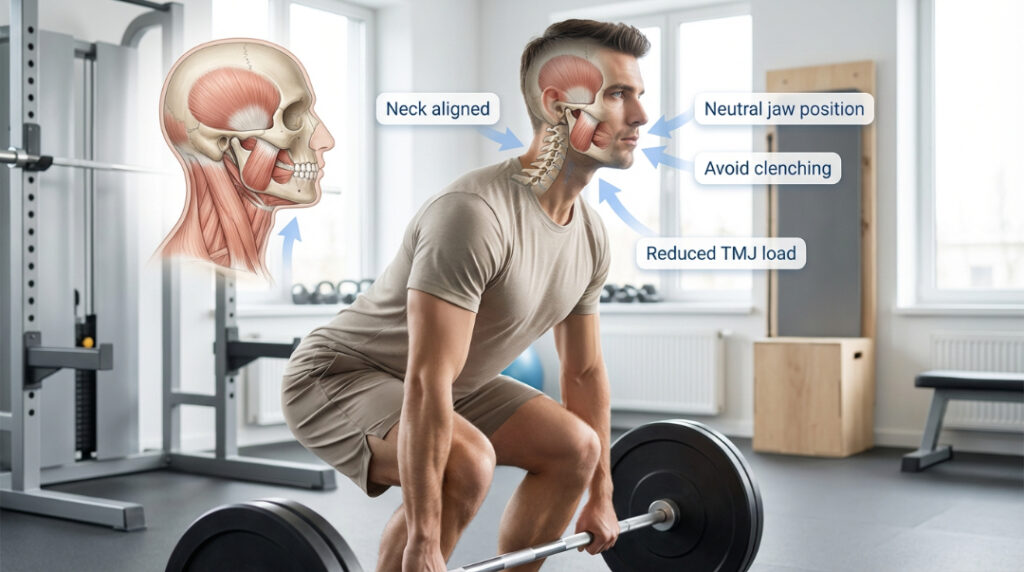
Form adjustments protect the jaw while keeping strength gains.